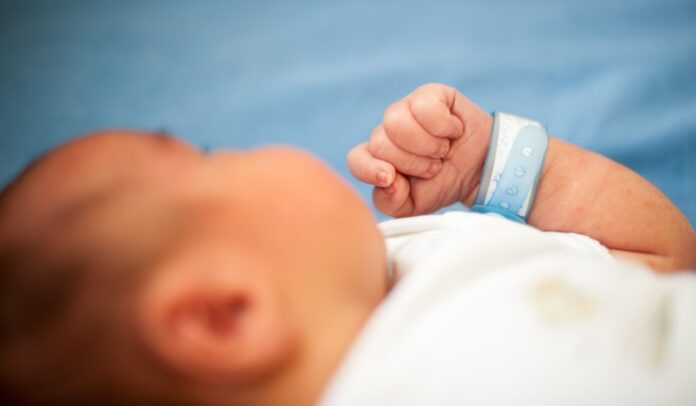NHS Greater Manchester is urging parents and carers to keep an eye out for symptoms of bronchiolitis in their young children and providing advice on how to treat and prevent it – after local GPs and hospitals cross the city region have seen a rise in cases.
Most widespread during the winter months, bronchiolitis is a common viral infection that you can get more than once, which affects one in three children under two.
At the start, bronchiolitis symptoms are like a cold – including a runny nose and cough, before others developing including a fever, dry persistent cough, taking a long time to feed, dry nappies and wheezing.
More often than not, bronchiolitis can easily be treated at home by giving fluids little and often, keeping a baby cool and in a well-aired room, and giving infant paracetamol such as Calpol, or ibuprofen to bring down a temperature (making sure to follow packet guidance and advice from the NHS website).
The virus usually clears within two weeks without the need for further treatment, however a small number of babies (more commonly those born premature or with an underlying health condition ) who develop bronchiolitis will need to go to hospital if they become seriously unwell. So do contact your GP or call NHS 111 if you are worried about your little one.
Thankfully, because it is a virus, there are easy steps that families and friends can take to help reduce the chances of young children getting it or spreading it. These include:
- Everyone washing their hands before cuddling or passing something to the baby or child
- This is even more important if anyone has a cold in the house, and regularly washing the baby’s own hands
- Wiping toys, doors, handles and surfaces around the house frequently
- Keeping children who are poorly at home until their symptoms ease
- Keeping newborn babies away from people with colds or flu
- Putting tissues in the bin straight away
In addition, pregnant women can actually help protect their unborn babies by getting the Respiratory Syncytial Virus (RSV) vaccine at over 28 weeks. RSV is a major cause of bronchiolitis, as well as pneumonia, so by getting the jab when pregnant, parents-to-be can help prevent their babies from getting it when they are born.
Professor Manisha Kumar, Chief Medical Officer said: “Bronchiolitis is on the rise, so we hope that by making people aware of the virus that mothers-to-be, parents, carers, family and friends will know what to look out for and when is the right time to seek medical help.
“We also hope it will provide reassurance that it is a common illness that, in most cases, is relatively easy to treat at home without any need for concern.
“By knowing the symptoms, treatment and simple ways to prevent it – it will help keep the youngest members of the family well, stop the virus spreading and provide you with peace of mind.”







